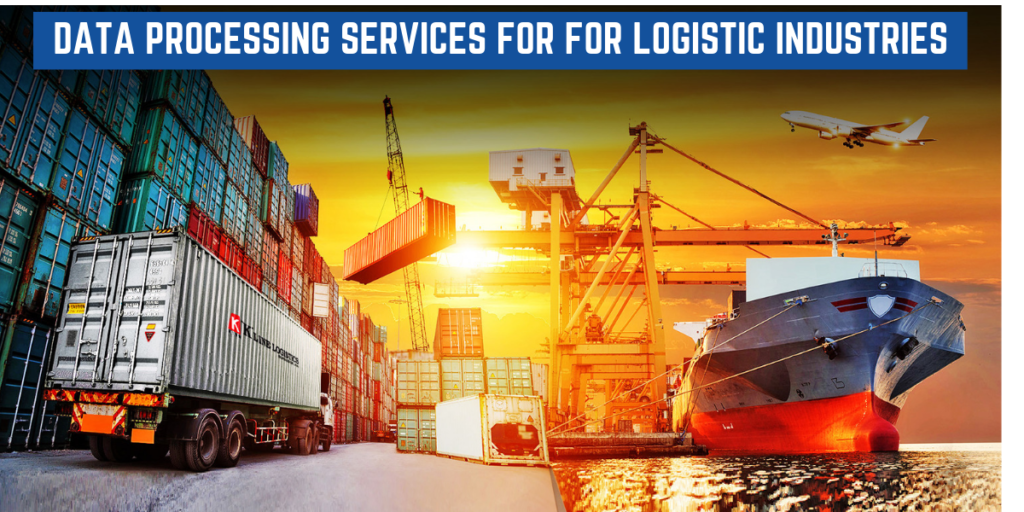Speed is the essence in the industry of logistics and transportation. The logistics business is rated according to the quality and speed at which products have been delivered to the customers. This race begins as soon as a logistic company receives an order for the shipment. A speedy and timely on-the-field work is possible only when off-the-field team is working at a great pace. Yes, we are talking about the data processing team. It has to be efficient in sorting out the unwanted data and obsolete data so that the company is only left with valuable information. It should be able to process the files and manage the documents in minimum time to unburden and decrease the cost of production of the company.

To stay ahead of the competitors, the logistic sector needs an effective mechanism that will improve the velocity of the work. It is a myth that logistic companies need large amount of data. In fact, it is not the quantity but quality of data that matters. A logistics company needs the right data for continuous business improvement. And no one can do that job better than a data processing service provider.
Let’s talk about in detail how data processing service benefits the logistic and transportation industry:
- Enhance order processing capabilities
The data processing service is independent of existing orders and information from KPIs. By keeping relevant and accurate data, you make space for the entry of new orders. Eventually, this helps in shipping more orders and also, driving the demand further in the supply chain.
- Do the forecast accurately
Are you wondering if processed data is used in the logistics industry for generating estimate? Well, yes, like most of the industries, historical data is used in making predictions in this industry as well. For instance, shipment during the holiday time usually calls for more workers at the warehouse, for delivery purpose, and so on. During holidays, employing more workers in the company helps in eliminating the congestion and ensuring smooth running of the supply chain.
- Eliminates Irrelevant Data
Taking ‘not the quantity but quality of data that matters’ point further-every transaction, acceptance of the orders, departure of product generates data in the logistics and transportation industry. However, not all data is relevant to the transportation business. Data like employees check-in and check-out time is not at all required. In fact, such information needs to be filtered for the effortless working of the operations.
- Improves scrutiny and visibility
Data in the logistics industry can be used to pass information to customers. They can be updated or notified on the status of their order. Also, real data can be used to identify routes to de-stress the process of shipment. Further, the same data can be accessed at the time of emergency at a port, ensuring timely and inexpensive delivery across the borders.
The use of data in the logistics and transportation industry should not make things difficult; instead, it should help in bringing efficiency in the shipping sector. However, only a well-processed data can ensure that.
TAGS
- #BusinessEfficiency
- #DataEntryServices
- #DataManagement
- #DataProcessing
- #Productivity
- Amazon listing services
- Amazon product listing services
- best data entry services
- dataentry
- Data Entry Company
- Data Entry Outsourcing
- Data Entry Outsourcing Agencies
- data entry outsourcing companies
- data entry outsourcing companies in India
- Data Entry Service Provider
- data entry services
- Data Entry Services in India
- ecommerce trends 2025
- photoeditingservices
- product listing services

